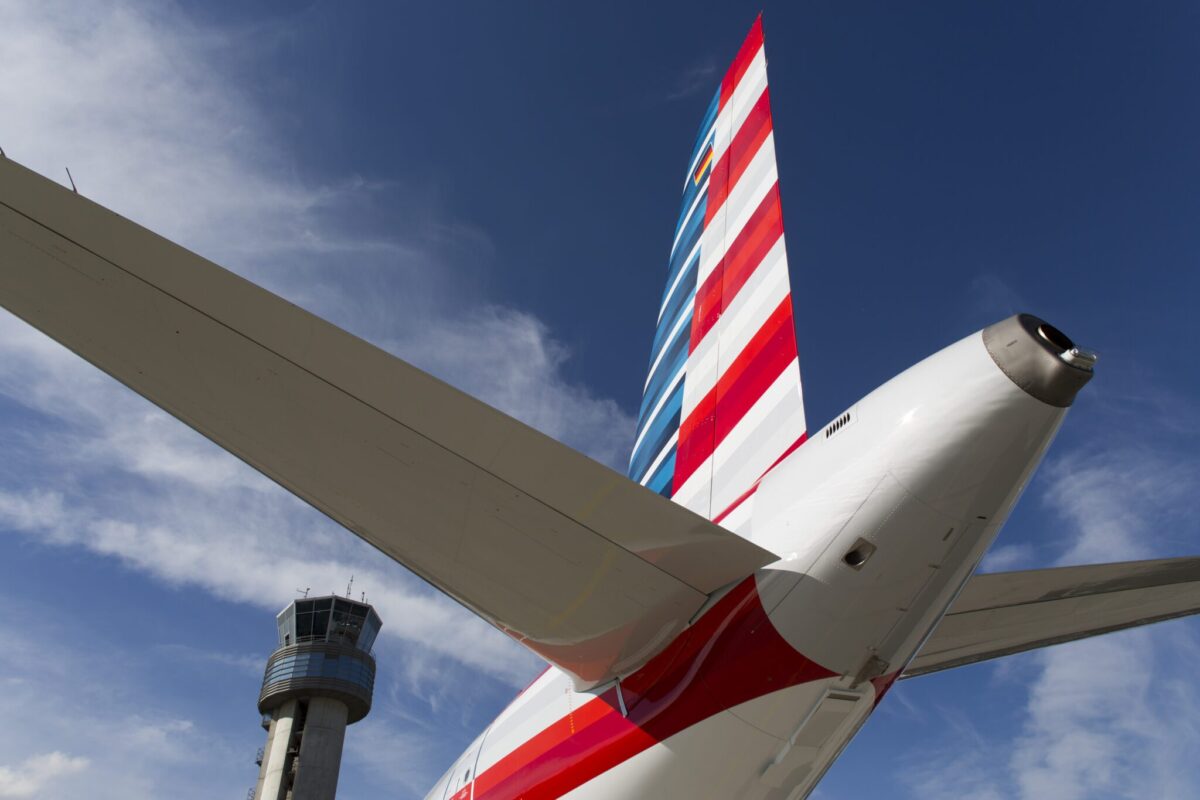Flight Attendants' Union Rejects American Airlines' 17% Pay Increase Proposal

Photo Credit: The tail of an American Airlines aircraft. Airbus Airbus / Airbus
Skift Take
The union that represents American Airlines flight attendants rejected the carrier's proposal to increase wages by 17%. Now, American flight attendants are preparing for the possibility to strike.
The union that represents flight attendants at American Airlines rejected the carrier's offer that would raise pay by 17%.
Previously, American CEO Robert Isom offered its flight attendants a 17% wage increase as they weigh a potential strike. He also told flight attendants in a video sent to them on Wednesday that the airline would also revise its formula for higher profit sharing.
“We will be back at the table with [Association of Professional Flight Attendants] leadership next week and a deal is within reach,” Isom said in the video, “but I don’t know how long it will take to get to the finish line and I don’t want another day to go by without increasing your pay.”
However, the union that represents American’s flight attendants said they want a complete contract.
“This is not the first time management has offered a similar idea, such as the short-term contract earlier in the year,” APFA said in a statement. “APFA’s position has been Flight Attendants want and need a complete contract.”
APFA's board of directors said it unanimously rejected American's offer.
"Management should focus on reaching an agreement with APFA rather than concocting schemes to take the pressure off," the union's national officers and board of directors said in a statement.
American Flight Attendants Inch Closer to Striking
Negotiations between American’s flight attendants and management have stalled for months and are now intensifying as the union considers a strike. On Wednesday, APFA said it would open a strike command center.
Since airlines fall under the Railway Labor Act, it’s harder for their employees to strike. The National Mediation Board, which oversees negotiations under the RLA, would need to grant the union’s request to strike. And before APFA members can strike, they would have to wait out a 30-day cooling off period.
Other airlines are also in the middle of tense negotiations with their flight attendants unions. Alaska Airlines and United Airlines are still bargaining with their flight attendants. Delta Air Lines flight attendants are in the middle of a union campaign to join the Association of Flight Attendants.
Southwest Airlines just reached an agreement with its flight attendants with 22.3% raises.
A Sore Point for American
The stalled negotiations among American flight attendants and management have become a sore point for the airline. After chief commercial officer Vasu Raja abruptly exited the company last week, TD Cowen analyst Helane Becker wrote that American needs to reach an agreement with its flight attendants soon.
“It is taking far too long to get this done,” she wrote in a report May 29. “The company and the flight attendants are in mediation. We believe the National Mediation Board is losing patience with both sides based on various reports.”
During a shareholder meeting Wednesday morning, Isom said, “We're committed to paying all of our team members well and competitively,” when asked about the state of negotiations with flight attendants.
Bargaining between the union and management is supposed to resume June 10, and the APFA said some of the main issues in the negotiations will be “economics and management demands for scheduling concessions.”




